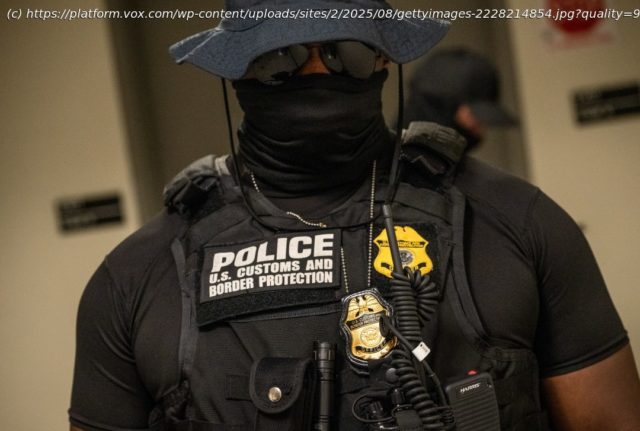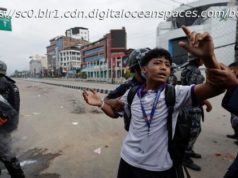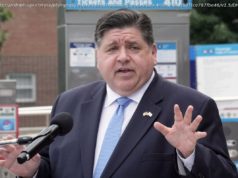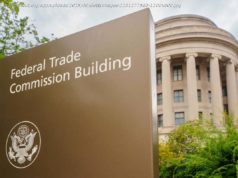Don’t expect the courts to keep ICE under control.
Editor’s note, September 8, 3:15 pm ET: On Monday, the Supreme Court decided Noem v. Perdomo in the Trump administration’s favor, by a 6-3 vote, with all six Republican justices voting with the majority and all three Democratic justices dissenting. The decision lifts a lower federal court’s injunction handed down in July that stopped federal law enforcement, including ICE officers, from stopping or detaining people in Los Angeles based “solely” on four factors, or any combination of them: because of their “apparent race or ethnicity,” because they speak Spanish or speak English with an accent, because of where they work, or because of the type of work they do.
Once again, the majority did not explain its decision, which was issued on the Court’s emergency “shadow docket.” In a solo concurrence, Justice Brett Kavanaugh wrote that these four factors can help establish “reasonable suspicion” for federal law enforcement to stop and detain people: “apparent ethnicity alone cannot furnish reasonable suspicion; under this Court’s case law regarding immigration stops, however, it can be a ‘relevant factor’ when considered along with other salient factors. Id., at 887. Under this Court’s precedents, not to mention common sense, those circumstances taken together can constitute at least reasonable suspicion of illegal presence in the United States.”
But in a scathing dissent, Justice Sonia Sotomayor countered that the decision amounts to legalizing the racial profiling of Latinos, writing, “We should not have to live in a country where the Government can seize anyone who looks Latino, speaks Spanish, and appears to work a low wage job. Rather than stand idly by while our constitutional freedoms are lost, I dissent.”
The outcome reflects what Vox’s Ian Millhiser previewed after the case appeared on the shadow docket. His original analysis from August 15 remains below.
Last month, a federal judge in Los Angeles handed down a temporary order placing some restrictions on the Trump administration’s immigration crackdown in that city. The Trump administration now wants the Supreme Court to lift those restrictions.
The contested provisions of Judge Maame Ewusi-Mensah Frimpong’s order are fairly narrow. They provide that federal law enforcement may not rely “solely” on four factors when determining to stop or detain someone suspected of being an undocumented immigrant. Under Frimpong’s order, the government may not stop or detain someone solely because of 1) their “apparent race or ethnicity,” 2) the fact that they either speak Spanish or speak English with an accent, 3) their presence at a location such as an agricultural workplace or day laborer pick-up site, or 4) the type of work that they do.SCOTUS, Explained
Get the latest developments on the US Supreme Court from senior correspondent Ian Millhiser.
Frimpong’s order prohibits the government from relying exclusively on any one of these factors or on any combination of them, so it could not detain someone solely because they speak Spanish and they are a day laborer, for example. The government may still rely on these four factors to determine whom to stop or detain, however, so long as it has other reasons for targeting a particular individual.
Thus, for example, US Immigration and Customs Enforcement (ICE) could target someone because that person speaks Spanish, and they work as a day laborer, and they were witnessed getting into a truck owned by a company known for hiring undocumented immigrants, because one of the three factors that ICE considered in this hypothetical stop is not on Frimpong’s list.
That said, at least according to the Cato Institute’s David Bier, Frimpong’s order has drastically reduced the number of immigration arrests within Los Angeles.
The central issue in this case, known as Noem v. Perdomo, is what courts are practically able to do in order to rein in overzealous tactics by law enforcement. Judge Frimpong’s order is modest — again, it does not prevent the Trump administration from targeting anyone, just as long as part of the reason why a particular individual is targeted doesn’t appear on Frimpong’s list of four — but it is also unlikely to survive contact with a Republican Supreme Court that is extraordinarily solicitous toward Donald Trump.
Indeed, the Court has long cautioned lower court judges against issuing broad orders imposing across-the-board restrictions on law enforcement. One of the seminal cases that the Trump administration relied upon in its Perdomo brief was handed down in 1983, well before the Court’s recent partisan turn.
The Republican justices, in other words, likely will not even need to stretch the law very far if they want to rule in Trump’s favor in Perdomo.What is ICE up to in Los Angeles?
The Perdomo case arises out of multiple immigration raids in Los Angeles, which have often taken place at job sites and other locations where the Trump administration believes that undocumented immigrants are often present. As Frimpong found, “car wash workers, farm and agricultural workers, street vendors, recycling center workers, tow yard workers, and packing house workers were targeted.






